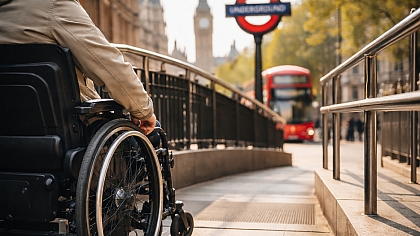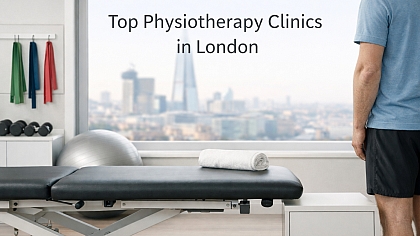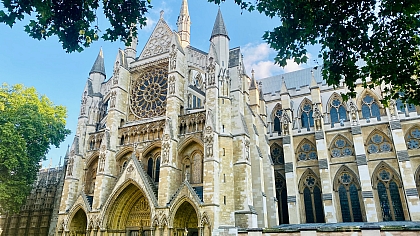
Addiction Help in London: Free & Private Sources of Help
Drug and alcohol addiction is rife across the United Kingdom, whether people are formally diagnosed or not.
An estimated 310,863 adults came in contact with a drug and alcohol rehab provider from 2023 to 2024, with less than half of this figure proceeding to enter treatment.
Alcoholism and illicit drug use are particularly prominent in London, where people are more prone to experiencing social and emotional issues related to work stress, housing insecurity, financial issues, and a more intense pace of life.
Additionally, the availability of alcohol and illicit substances is more pervasive in the UK’s capital. Because of this, it’s important to understand the available addiction help in London.
Understanding Addiction Support in London
When suffering from drug or alcohol dependence in London, it’s important to understand the forms of support you can access.
Addiction and mental health treatment or support can come in the following ways:
- NHS Services
- Charities and Non-Profit Organisations
- Private Addiction Treatment
- Self-Help & Support Groups
Why Accessing Help Is Crucial
Accessing help is imperative because the longer you leave an addiction to fester, the worse its symptoms will become and the more difficult it will be to recover. Professional support will not only help you overcome your withdrawal symptoms, but it’ll also assist you in developing healthy coping strategies.
When an addiction goes untreated long enough, the addicted person becomes much more likely to suffer from fatal withdrawal symptoms (such as seizures), health complications such as cancer or diseases, or an overdose.
To keep experiencing the same level of euphoria, addicted people will increase the levels of consumption and strength of their substance.
When trying to recover independently by abstaining or going “cold turkey”, it is often the case that the person relapses.
This is especially dangerous because they may consume the same quantities as they previously had, even if their tolerance may have reduced, which can lead to overdosing.
The financial year from 2023 to 2024 saw almost 340,000 alcohol-specific hospital admissions and over 8,200 alcohol-specific deaths.
These figures are distinct from alcohol-related hospital admissions and deaths.

Free Addiction Services in London
Financing addiction treatment in London may be a concern for many addicted people, so it’s useful to know where you can access treatment free of charge.
However, the downside to free addiction support services in London is that the demand may be high, and the supply lower.
NHS Addiction Services
When suffering from a drug or alcohol addiction in London, you can contact your local GP to undergo a health assessment.
A health assessment will be carried out to determine the severity of your addiction, whether there are co-occurring disorders (e.g. mental health issues), or physical issues which are affecting your condition.
After an initial screening, you’ll be referred to a local drug and alcohol treatment service. This service is not a private drug and alcohol rehab.
While the free addiction services in London, such as the NHS, may aid your recovery, there may be a long waiting list depending on the area.
You can use the NHS Service Finder to assist your recovery and initiate your journey towards a healthy lifestyle.
Charities and Non-Profits Offering Free Help
There is a range of charities and non-profit organisations in London which can offer addiction recovery and mental health support.
While it isn’t advised that these organisations are substituted for a professional addiction or mental health counselling, they can provide recovery resources and be a source of support network.
Here are some charities and non-profits which you can access from London:
- Frank: Frank, or Talk to Frank, is an anti-drug national advisory which also offers a wealth of support for people who are struggling with addiction. With Frank, you can learn more about local addiction centres near you, an addictive substance, protocols to follow during an emergency, and more.
- Change Grow Live (CGL): CGL is a voluntary organisation which specialises in offering support for people suffering from drug and alcohol addiction. CGL offers relapse advice, treatment options, and the opportunity to chat with experienced addiction specialists. They also offer peer mentoring, career development guidance, and the opportunity to volunteer and give back following recovery.
- Turning Point: Turning Point offers support for people experiencing a range of issues, from substance abuse, physical and learning disabilities, personal issues, and more. Addiction can affect every facet of your life, and Turning Point can offer comprehensive support to aid you in your recovery.
- We Are With You: Supporting more than 100,000 people each year across England and Scotland, We Are With You can offer addiction, mental health, and young people’s recovery services to not only combat addiction but also increase prospects.
Local Support Groups
Support groups can come in many forms, and many will operate out of London due to its high population. Here are some local support groups you can find in London to receive addiction and mental health support:
- Alcoholics Anonymous: There’s a reason why AA is one of the most recognisable support groups associated with addiction recovery. Established in 1935, AA has assisted countless people in their quest for recovery each year. The group operates internationally, with many support meetings taking place daily in London and online. AA can help people in recovery find support networks, experience emotional catharsis, and positive social reinforcement, which can sustain their recovery.
- Narcotics Anonymous: Similar to AA, NA caters to those recovering from other substances, including alcohol. Attendees can find meetings online or in person in London, gain access to online resources, and find events near them to aid their recovery.
- UK SMART Recovery: SMART Recovery is another support group which offers extensive support to people as long as they have the desire to recover. People in recovery can attend meetings in person or online, as well as specific programs for friends and families, veterans (Military SMART), offenders (SMART Inside Out), and more.
Private Drug and Alcohol Addiction Treatment Help in London
Due to its swift admission and high quality of facilities, private drug and alcohol treatment centres in London are often the most effective way to recover from substance addiction.
However, it can be costly, turning people towards cheaper or free alternatives.
A private drug and alcohol addiction treatment will often admit patients as inpatients.
These patients can then stay for around 4 weeks (or longer, depending on their unique condition) in a medically supported facility where they will undergo recovery.
They will undergo different stages to maximise their recovery:
- Medical detox: The medical detox is necessary for patients suffering from severe withdrawal symptoms. Patients will be prescribed medication which can minimise the severity of their withdrawal symptoms safely, and will stay in a safe and comfortable environment with the support of medical supervisors.
- Therapy and counselling: Patients will undergo a range of therapies such as CBT, DBT, family therapy, and more in order to help them develop sustainable and healthy coping mechanisms.
- Relapse prevention planning: In preparation for life after rehab, patients will learn a range of relapse prevention strategies. These strategies, when paired with attending support groups such as AA or SMART, can combine to form a robust lifestyle that sustains recovery.

Mental Health Helplines
Addiction has profoundly adverse effects on our mental health, whether you suffer from it or a loved one does. We must establish a support network through our friends, family, and experienced professionals.
However, if you’re struggling to find immediate support, consider reaching out to these mental health support helplines:
- Mind: 0300 102 1234
- Samaritans: 116 123
- Talk to Frank: 0300 123 6600
- National Suicide Prevention Helpline UK: 0800 689 5652
- Campaign Against Living Miserably (CALM): 0800 58 58 58











